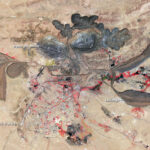US has unveiled sweeping modifications to its non-immigrant visa policy for three African nations — Nigeria, Cameroon, and Ethiopia — significantly reducing the validity period and conditions under which most travellers from these countries can enter.
According to a statement from the US Department of State, almost all non-immigrant and non-diplomatic visas issued to citizens of the three countries will now be limited to single-entry and valid for just three months. This marks a stark departure from previous visa arrangements that often allowed for multiple entries over extended periods — sometimes two years or more.
The move is being presented by the State Department as part of a “global reciprocity realignment,” which aims to standardize visa durations and conditions in line with what US citizens receive in those countries. However, this rationale has been met with resistance, particularly from Nigeria.
In a swift response, the Nigerian government refuted reports that it offers only single-entry, three-month e-visas to US citizens. Presidential spokesman Bayo Onanuga stated on Thursday that American nationals are still eligible for five-year, multiple-entry visas. “We want to reiterate that the US government’s claim of reciprocity as the reason for its current visa policy towards Nigeria does not accurately reflect the actual situation,” Onanuga said.
Meanwhile, citizens of the United States can reportedly obtain visas valid for up to a year in Cameroon and 90 days in Ethiopia, although authorities in those two nations have yet to publicly respond to the US policy change.
The Nigerian government has expressed strong concerns about the restrictions, describing them as disproportionate and urging the US to reconsider. Officials warned that the new rules could damage longstanding educational and cultural exchange programs that have historically underpinned strong bilateral ties between the two countries.
In its official communication, the State Department reiterated that US visa policies remain “subject to ongoing review” and could evolve depending on shifts in diplomatic relations, security conditions, and immigration-related concerns. It added that it is working collaboratively with the three affected countries to ensure compliance with key international standards. These standards include:
- Issuing secure and verifiable travel documents
- Effectively managing visa overstays
- Sharing criminal and security-related data for public safety
The latest changes come on the heels of even more stringent visa restrictions imposed last month on Eritrea, Somalia, and Sudan. In those cases, the US suspended all immigrant and non-immigrant visas for citizens of the three countries entirely.
In a broader tightening of immigration protocols, the US has also mandated the screening of social media accounts for all foreigners applying for visas. This process includes searching for any “indications of hostility toward the citizens, culture, government, institutions, or founding principles of the United States.”
Nigeria has long held a strong presence in the realm of international education in the US. According to the 2024 Open Doors report — published by the US Department of State’s Bureau of Educational and Cultural Affairs — Nigeria was the seventh-largest source of international students in the United States and the top source from Africa. The report noted a 13.5% increase in Nigerian student enrolment compared to 2023, highlighting the country’s growing academic footprint in the US.
Despite this strong educational linkage, reactions to the visa changes have been mixed. Bashir Ahmad, a former aide to ex-President Muhammadu Buhari, suggested that the US move is politically motivated. In a post on social media platform X (formerly Twitter), Ahmad speculated that the restriction may be a response to President Bola Tinubu’s recent engagement with the BRICS bloc during his visit to Brazil.
“This is not solely about reciprocity. Rather, it appears to reflect growing US discomfort with Nigeria’s increasing global realignment, particularly the warm reception we are receiving from the BRICS,” Ahmad wrote.
However, immigration law experts offer a different view. Speaking to the BBC, immigration attorney Godwin Oke said: “This is a classic case of visa reciprocity under international diplomatic practice. Countries often align their visa terms to reflect mutual treatment.”
Oke explained that while the US had been providing Nigerians with five-year multiple-entry visas, Nigeria was only granting Americans short-term, single-entry visas — creating a policy imbalance that, from a US perspective, demanded adjustment.
Earlier this year in March, the US embassy in Nigeria issued a stern advisory, warning that visa overstays could result in lifetime bans and possible criminal prosecution. While there is no comprehensive public data showing how many Nigerians overstay their US visas, the perception of overstay risks has heightened official scrutiny.
These developments have added to anxiety among many Nigerians, particularly young people seeking opportunities abroad — a phenomenon popularly referred to as “Japa,” which means “escape” in the Yoruba language. The US remains one of the top desired destinations for this demographic.
With the new restrictions in place, many Nigerians fear that obtaining a US visa will become even more difficult, particularly under President Donald Trump’s strict immigration policies, which have left lasting effects on global travel dynamics.
As debates continue over the motivations and consequences of this policy change, the visa realignment stands as a reminder of the fragile balance between diplomacy, national security, and international cooperation — and the human stories at the heart of each visa stamp.






